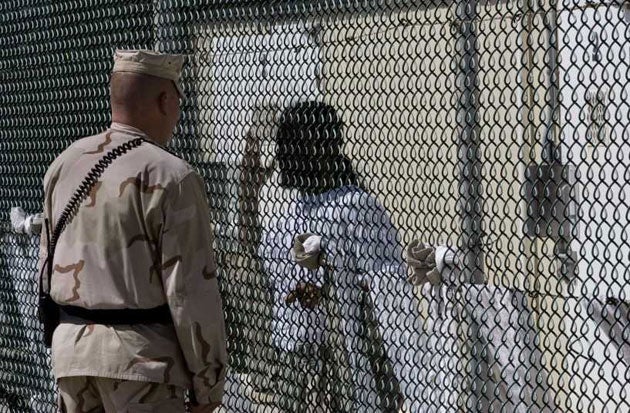Guantanamo inmate wins right to see secret 'torture' evidence

Your support helps us to tell the story
From reproductive rights to climate change to Big Tech, The Independent is on the ground when the story is developing. Whether it's investigating the financials of Elon Musk's pro-Trump PAC or producing our latest documentary, 'The A Word', which shines a light on the American women fighting for reproductive rights, we know how important it is to parse out the facts from the messaging.
At such a critical moment in US history, we need reporters on the ground. Your donation allows us to keep sending journalists to speak to both sides of the story.
The Independent is trusted by Americans across the entire political spectrum. And unlike many other quality news outlets, we choose not to lock Americans out of our reporting and analysis with paywalls. We believe quality journalism should be available to everyone, paid for by those who can afford it.
Your support makes all the difference.A British resident facing the death penalty at Guantanamo Bay has won his case for the Government to disclose secret evidence that he says supports claims he was tortured into confessing to crimes he did not commit.
Binyam Mohamed, 30, who was arrested in Pakistan six years ago, says the Americans flew him to a prison in Morocco where he was tortured before his transfer to a US detention centre in Afghanistan.
In 2004, he was taken to the US Navy base in Cuba where he is awaiting a trial before a military commission on charges that he conspired with al-Qa'ida leaders to plan terror attacks on civilians.
But yesterday the High Court in London said British authorities still held secret material that might help confirm Mr Mohamed's whereabouts and the nature of his detention after 2002.
The judges said his allegations of torture were at least "arguable" and that the Security Service, MI5, had information relating to him that was "not only necessary but essential for his defence".
In the ruling, the judges said the "conduct of the Security Service facilitated interviews by or on behalf of the US when Binyam Mohamed was being detained by the US incommunicado" in 2002 in Pakistan. Working with the Americans after the 9/11 terror attacks, the British authorities sent an officer from MI5 to interview him, the court said. The officer told him he could expect no help from Britain unless he fully co-operated with his US interrogators. Mr Mohamed said the MI5 officer also told him he was going to be rendered to an Arab country where he would be tortured. The US has refused to say what happened to Mr Mohamed between 2002 and 2004.
The court found that without the information held by MI5, Mr Mohamed would be unable to put up a defence to the charges against him at his US military tribunal. His lawyers yesterday described the ruling yesterday as a "a momentous decision".
Clive Stafford Smith, legal director of human rights group Reprieve, said: "Compelling the British Government to release information that can prove Mr Mohamed's innocence is one obvious step towards making up for the years of torture that he has suffered. The next step is for the British Government to demand an end to the charade against him in Guantanamo Bay, and return him home to Britain."
Richard Stein, of the solicitors Leigh Day & Co, who represent Mr Mohamed, said the judgment "reflects the abhorrence of decent society at the methods employed by the US government in the supposed 'war on terror'. We can only hope the Foreign Secretary will reflect on this judgment and provide direct assistance to Binyam's defence team."
In 1994, Mr Mohamed, an Ethiopian by birth, was granted asylum in the UK. He spent seven years in north Kensington, London, working in a mosque as a caretaker, and travelled to Afghanistan in 2000 to confront his drug and personal problems. In 2002, he was arrested in Pakistan while trying to board a flight to Britain.
The court has yet to decide whether the Foreign Secretary is within the law to withhold the information on the ground of national security.
Join our commenting forum
Join thought-provoking conversations, follow other Independent readers and see their replies
Comments